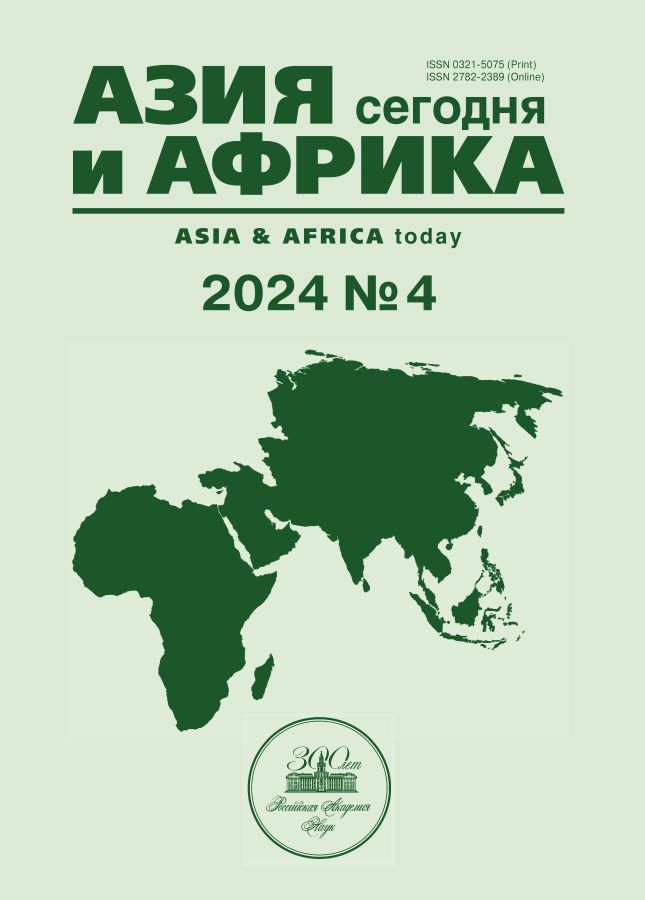What Maghreb Writers of the XX and XXI Centuries Dream of and Denounce (Essay)
- Authors: Prozhogina S.V1
-
Affiliations:
- Institute of Oriental Studies, Russian Academy of Sciences
- Issue: No 4 (2024)
- Pages: 64-70
- Section: Culture, literature, art
- URL: https://rjpbr.com/0321-5075/article/view/647420
- DOI: https://doi.org/10.31857/S032150750030602-4
- ID: 647420
Cite item
Abstract
The essay examines distinct patterns in the evolution and history of contemporary Maghreb Francophone literature (Algeria, Morocco, Tunisia), in which the employ of French language resulted to be a kind of weapon “seized” from the enemy colonizers. Its new forms of understanding reality are both an opportunity to formulate ideals of a better world order for postcolonial and modern times and the need to expose the flaws of the traditional societies, flaws caused by the reception by these societies of new methods of violence over individuals. These are among the main distinctive features of the Maghreb Francophone literature, which not only opposes the extremism of radical Islam and the challenges of the globalization but also reflects hopes for the triumph of Harmony and Justice.
About the authors
S. V Prozhogina
Institute of Oriental Studies, Russian Academy of Sciences
Email: svetlana.projogina@mail.ru
ORCID iD: 0000-0001-8276-0289
Dr.Sc. (Philology), Professor Moscow, Russia
References
- См.: Прожогина С.В. Корни и крона (заметки на полях стихотворения Тахара Бекри). Азия и Африка сегодня. № 8. 2023. doi: 10.31857/S032150750027144-0 Prozhogina S.V. 2023. Roots and Crown (Notes in the Margins of a Tahar Bekri’s Poem). Asia and Africa today. № 8. (In Russ.). doi: 10.31857/S032150750027144-0
- См.: M.Tlili. L’apres-midi dans le Desert. 2008.
- См.: B.Sansal. 2084, ou la fin du monde. 2015.
- См.: D.Chraibi “Le passé simple”, 1953.
- A.Memmi “La statut de sel”, 1954
- Tahir Hicham, Djaabouk (Le joint). Rabat, 2015.
- Tahar Benjelloun. Le plus beau pays du monde, 2020.
- T.Benjelloun. L’enfant de sable, P. 1985; La nuit sacrée, 1987 (русс. перев. М., Наука, 1990); “La nuit d’ erreur”, 1997; T.Benjelloun “Les yeux baissés”, 1991.
- Tahar Benjelloun “Cette aveuglante l’abscence de la lumière”, 2001.
- Tahar Benjelloun “L’auberge des pauvres”, 2012.
Supplementary files










